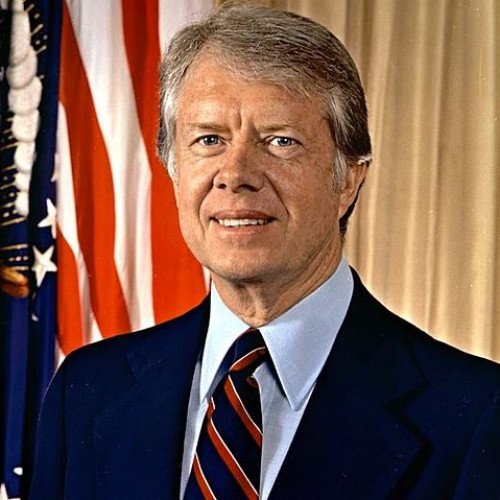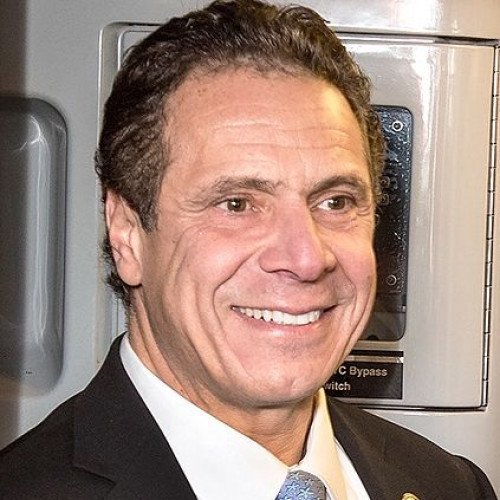Jimmy Carter VS Andrew Cuomo

Jimmy Carter
James Earl Carter Jr. (born October 1, 1924) is an American politician and philanthropist who served as the 39th president of the United States from 1977 to 1981. A member of the Democratic Party, he previously served as a Georgia State Senator from 1963 to 1967 and as the 76th governor of Georgia from 1971 to 1975. Since leaving the presidency, Carter has remained engaged in political and social projects as a private citizen. In 2002, he was awarded the Nobel Peace Prize for his work in co-founding the Carter Center. Raised in Plains, Georgia, Carter graduated from the United States Naval Academy in 1946 with a Bachelor of Science degree and joined the United States Navy, where he served on submarines. After the death of his father in 1953, Carter left his naval career and returned home to Georgia to take up the reins of his family's peanut-growing business. Carter inherited comparatively little due to his father's forgiveness of debts and the division of the estate among the children. Nevertheless, his ambition to expand and grow the Carters' peanut business was fulfilled. During this period, Carter was motivated to oppose the political climate of racial segregation and support the growing civil rights movement. He became an activist within the Democratic Party. From 1963 to 1967, Carter served in the Georgia State Senate, and in 1970, he was elected as Governor of Georgia, defeating former Governor Carl Sanders in the Democratic primary on an anti-segregation platform advocating affirmative action for ethnic minorities. Carter remained as governor until 1975. Despite being a dark-horse candidate who was little known outside of Georgia at the start of the campaign, Carter won the 1976 Democratic presidential nomination. In the general election, Carter ran as an outsider and narrowly defeated incumbent Republican President Gerald Ford. On his second day in office, Carter pardoned all the Vietnam War draft evaders by issuing Proclamation 4483. During Carter's term as president, two new cabinet-level departments, the Department of Energy and the Department of Education, were established. He established a national energy policy that included conservation, price control, and new technology. In foreign affairs, Carter pursued the Camp David Accords, the Panama Canal Treaties, the second round of Strategic Arms Limitation Talks (SALT II), and the return of the Panama Canal Zone to Panama. On the economic front, he confronted stagflation, a persistent combination of high inflation, high unemployment and slow growth. The end of his presidential tenure was marked by the 1979–1981 Iran hostage crisis, the 1979 energy crisis, the Three Mile Island nuclear accident, and the Soviet invasion of Afghanistan. In response to the invasion, Carter escalated the Cold War when he ended détente, imposed a grain embargo against the Soviets, enunciated the Carter Doctrine, and led a 1980 Summer Olympics boycott in Moscow. In 1980, Carter faced a challenge from Senator Ted Kennedy in the primaries, but he won re-nomination at the 1980 Democratic National Convention. Carter lost the general election to Republican nominee Ronald Reagan in an electoral landslide. He is the only president in American history to serve a full term of office and never appoint a justice to the Supreme Court. Polls of historians and political scientists usually rank Carter as a below-average president. Carter's activities since leaving the presidency have been viewed more favorably than his presidency itself. In 1982, Carter established the Carter Center to promote and expand human rights. He has traveled extensively to conduct peace negotiations, monitor elections, and advance disease prevention and eradication in developing nations. Carter is considered a key figure in the Habitat for Humanity charity. He has written over 30 books, ranging from political memoirs to poetry, while continuing to actively comment on ongoing American and global affairs such as the Israeli-Palestinian conflict.
Statistics for this Xoptio

Andrew Cuomo
Andrew Mark Cuomo (; Italian: [ˈkwɔːmo]; born December 6, 1957) is an American politician, author and lawyer serving as the 56th and current governor of New York since 2011. A member of the Democratic Party, he was elected to the same position his father, Mario Cuomo, held for three terms. He has served as Chair of the National Governors Association since August 2020. Born in Queens, New York City, Cuomo is a graduate of Fordham University and Albany Law School of Union University, New York. He began his career working as the campaign manager for his father, then as an assistant district attorney in New York City before entering private law practice. He founded Housing Enterprise for the Less Privileged (HELP USA) and was appointed chair of the New York City Homeless Commission, a position he held from 1990 to 1993. Cuomo served as Assistant Secretary of Housing and Urban Development for Community Planning and Development from 1993 to 1997. From 1997 to 2001, he served in President Bill Clinton's Cabinet as the 11th United States secretary of housing and urban development. In 2006, Cuomo was elected Attorney General of New York. Cuomo won the 2010 New York gubernatorial election to become Governor of New York and has been reelected twice after winning primaries against liberal challengers Zephyr Teachout (2014) and Cynthia Nixon (2018). During his governorship, Cuomo oversaw the passage of the 2011 Marriage Equality Act, introducing same-sex marriage in New York, and the 2014 Compassionate Care Act, legalizing medical marijuana. In response to the Sandy Hook Elementary School shooting and the 2012 Webster shooting, Cuomo signed the NY SAFE Act of 2013, the strictest gun control law in the United States. He co-founded the United States Climate Alliance, a group of states committed to fighting climate change by following the terms of the Paris Climate Accords. He also delivered Medicaid expansion under the Affordable Care Act; a 2011 tax code that raised taxes for the wealthy and lowered taxes for the middle class; 12-week paid family leave along with a gradual increase of the state's minimum wage to $15; and pay equity. Cuomo received national attention for his handling of the COVID-19 pandemic in New York.